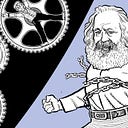Member-only story
The Emerging Research on Psychedelics
Psychedelics, that category of illegal drugs which includes LSD and magic mushrooms, have been illegal in the United States since the mid-60s, largely because of a conservative reaction to the lawlessness and free spirit of the 60s. Think of the so-called hippies who used these drugs recreationally. As the counterculture against the Vietnam War grew, and more and more people used these drugs, the powers at be felt threatened and decided to cut the party short. Of course, making the drugs illegal just added to their allure and helped create a whole cast of counterculture heroes, like Timothy Leary. But as a result of psychedelics being cast as an illegal schedule 1 drug (schedule 1 drugs are deemed to have no medical use), research on psychedelics largely ended by the 70s.
But there was a time when psychedelics were legal and were considered very promising for a wide range of mental health issues. In the 50s and 60s, Stanislav Grof emerged as one of the leading researchers of LSD research for instance. Groh said in a recent NPR interview, “It was quite extraordinary. This was a tremendous deepening and acceleration of the psychotherapeutic process, and compared with the therapy in general, which mostly focuses on suppression of symptoms, here we had something that could actually get to the core of the problems.”
